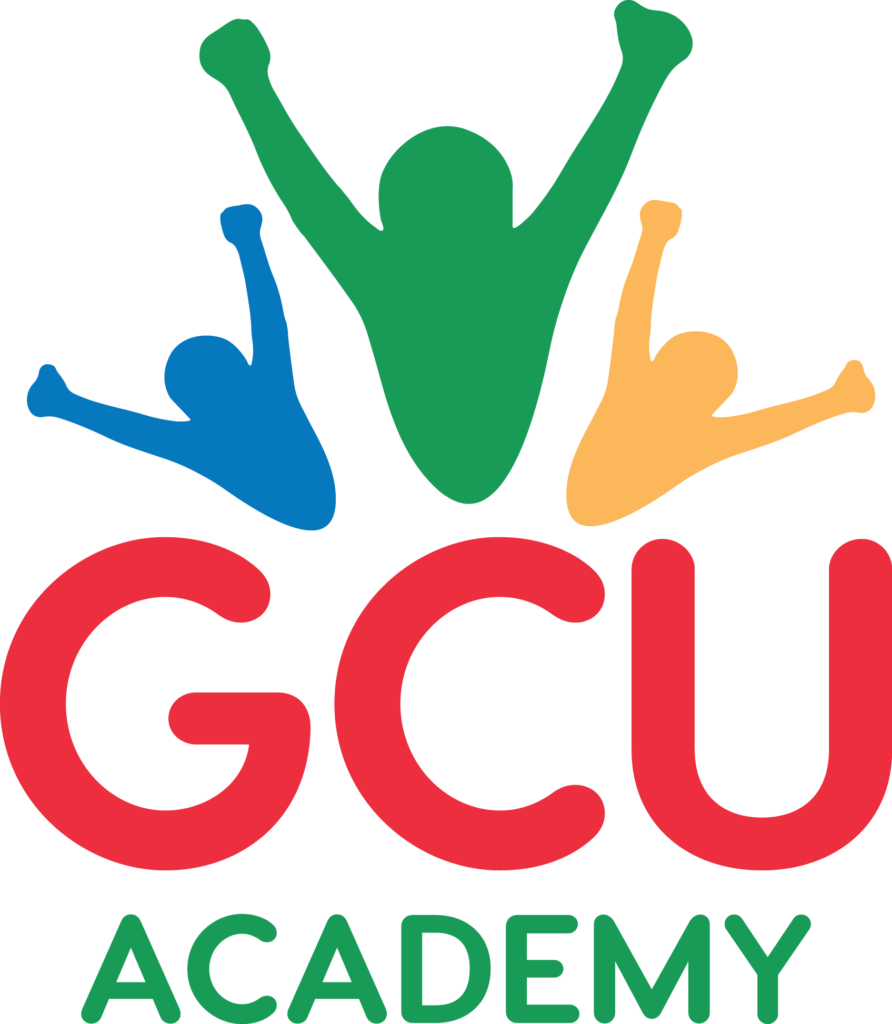
Great Commission United (GCU) was set up in 2001 by Mario Van Niekerk. Born and bred in Heideveld, Mario had witnessed many of the community’s problems first hand and felt passionate about helping youth within the area and keeping them off the streets.
Former gang leader and founder of GCU, Mario van Niekerk, strongly believes, “If we can inspire change for good in one child, they have the capacity to inspire change for good in others.”
Mario is 46 and lives in Heideveld with his wife Michelle and their two sons Zinedine and Isiah.
Mario is supported in his management of GCU by Charles Young (who established GCU with Mario in 2001) and by Adam Kane-Smith who has been involved with GCU since 2004 and who manages the governance, fund raising and accounts of GCU. The Early Childhood Development and feeding scheme projects which GCU offers, the fund raising for them as well as the property assets acquired are housed in a GCU Goal 50 Trust with four trustees overseeing these elements of the organisation. The trustees are Mario van Niekerk, Nigel Pascoe, Jan Louis Raath and Adam Kane-Smith.
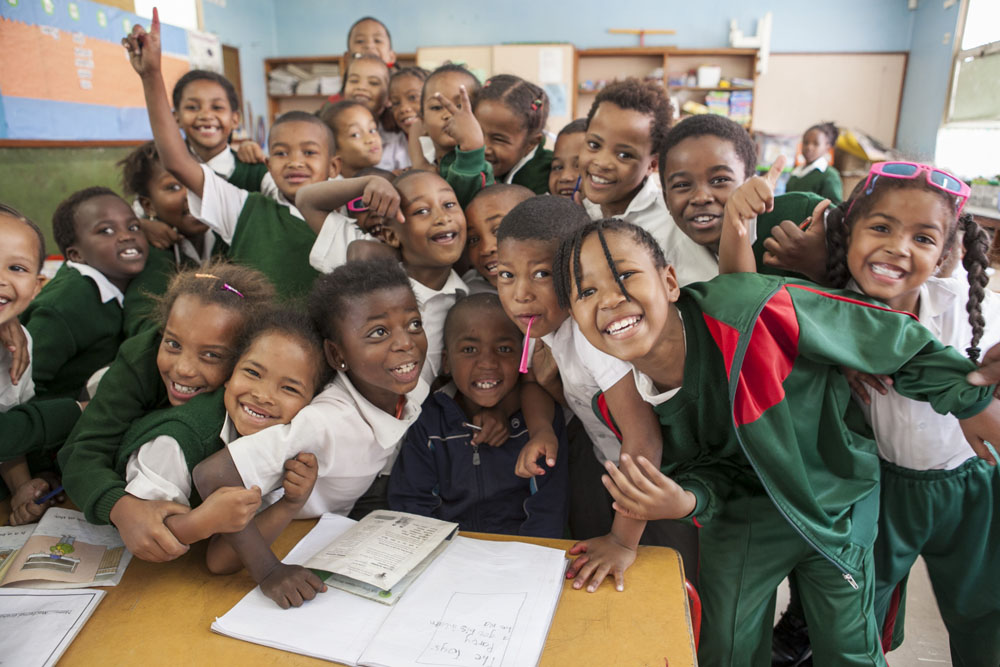
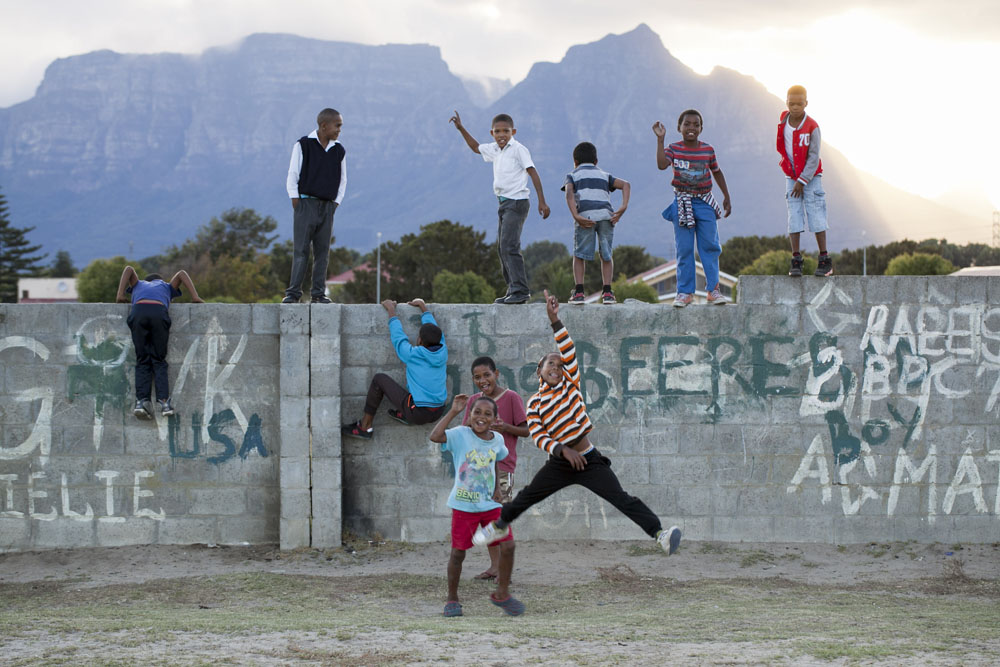
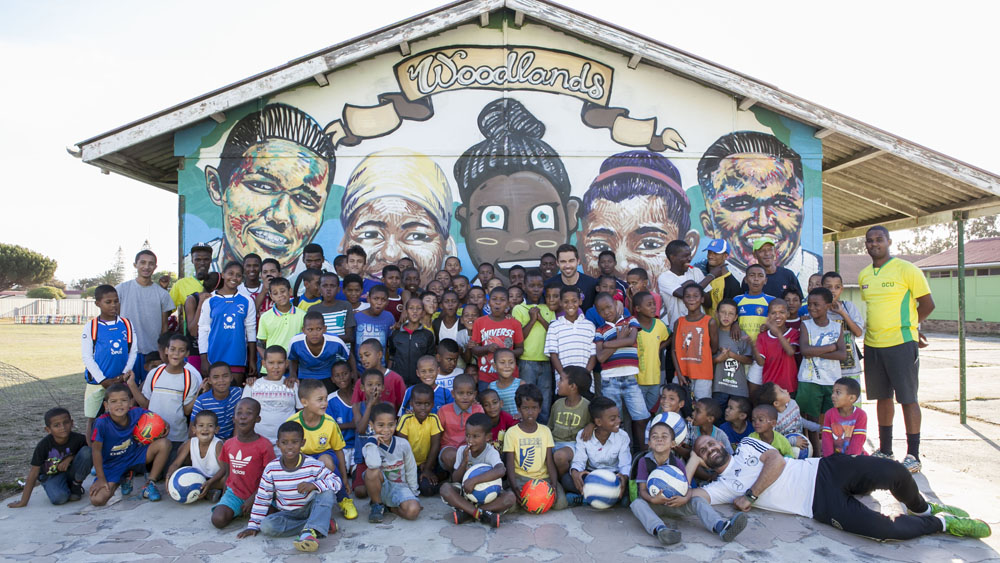
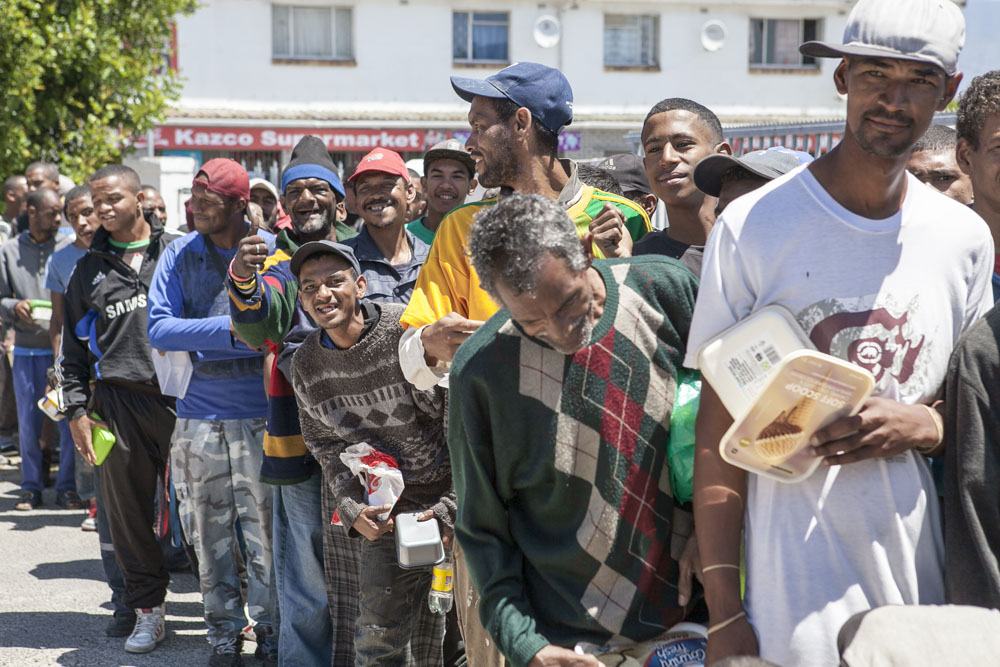
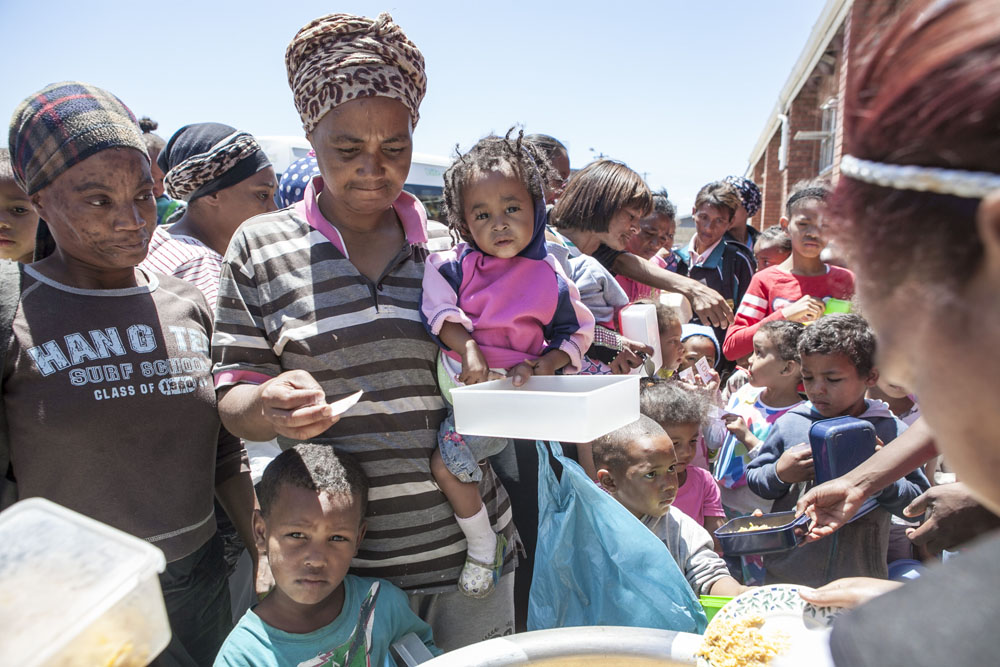
Great Commission United (GCU) offers a range of literacy, life skills, feeding and sports programs in the 5 Heideveld primary schools aimed to keep young people from Heideveld and surrounding areas on the Cape Flats with enhanced literacy and numeracy skills, away from gangs and crime and plugged into positive influences and aspirations. GCU recognises that the reversal of gang culture and poverty begins at grassroots level. The project strives to enrich the children’s life experience through the discipline of sport and other programs which aim to ignite a desire of wanting more from their lives. (The six areas in which GCU focuses its interventions are described in more detail below.)
Young people all over the community are exposed to Library and after school tuition and paired reading sessions at the Primary Schools. Additional life skills are imparted by a team of volunteers who receive a stipend from GCU.
GCU’s Library program includes three literacy support programmes.
Through these small group, regular interventions, GCU seeks to improve children’s reading skills; increase children’s exposure to positive role models; and increase personal awareness of choices and possibilities. It expects this to lead to improved academic performance, which is measured by internal assessments (using Wordworks’ tool), pass rates and Western Cape systemic assessments; increased self-esteem and ambition; and increased positive behaviour. Ultimately, it expects that this will reduce the dropout rate, lead to more matric passes, and increase the number of youth from Heideveld who access post-school opportunities and choose not to get involved in gangs.
Sessions are run by stipended community volunteers. The majority are young people, many of whom use the experience and skills development they gain at GCU as a stepping stone to accessing new opportunities, such as further study or new jobs. In this way, youth programme facilitators can be viewed as secondary beneficiaries of the programme.
GCU is seeking to sustain and strengthen the 5 libraries it has established in the 5 Heideveld primary schools and the library and reading programs at those schools; increase collaboration and engagement with school staff; and improve the quality of literacy activities by investing in staff training.
These programmes run alongside sports and chess programmes, which many children also attend.
Gang violence, substance abuse and uninvolved parents remain a challenge in the community. Contextual factors that will support the project are GCU’s thriving sports programmes, which complement the literacy programme, and the support and buy-in of the principals at all five schools. GCU also employs teams of sports coaches who provide the in school PE lessons the schools do not have the staff resources to provide. After these coaches provide sports drills and exercises and then team up to play in matches. GCU believes that if they can play together they can live together and respect and appreciate each other. As the children get older they are given an opportunity to become coaches, referees, leaders and role models in their own right, gaining new responsibilities and experience.
The project interacts with young people ranging in age from 5 to 21 with approximately 4,000 attending GCU one or more of the GCU interventions on a weekly basis.
GCU’s main areas of focus are as follows:
Nearly 4,000 children in the 5 Heideveld schools in which GCU operates its programs are impacted by the programs GCU runs. Monitoring and evaluating the performance of each child is an enormous task but one which GCU has begun.
To date data from the Western Cape Education Department and their evaluation of literacy and numeracy at Grade 3 and grade 6, have formed the basis for the evaluation of the impact of the program. Testimonials from teachers and principals have added to that evaluation.
The Data provided by partner programs, like the Wordworks program have also assisted in providing data to support the impact of the programs.

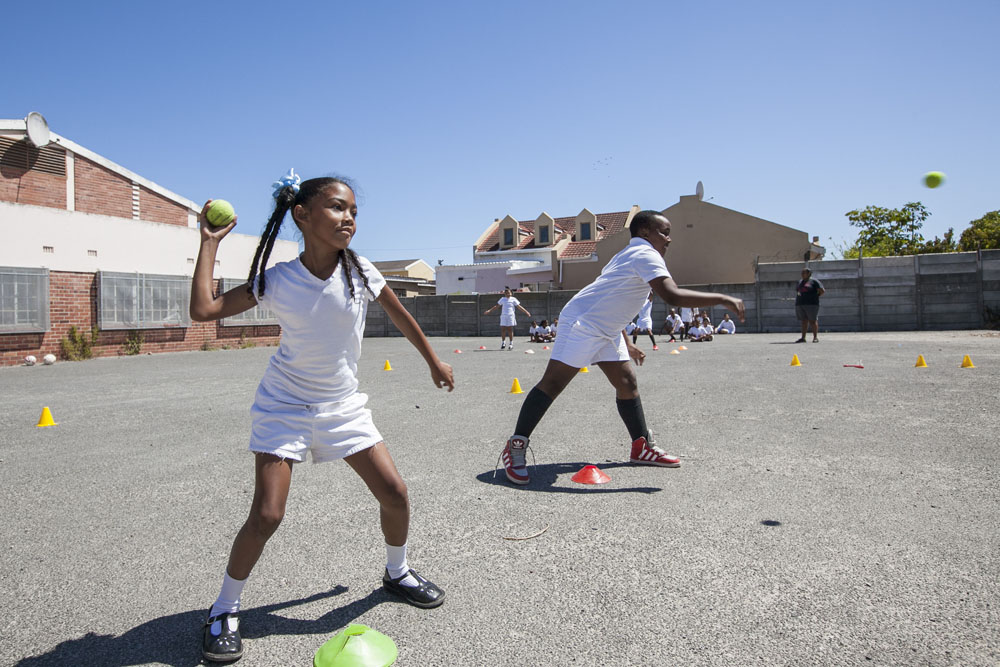
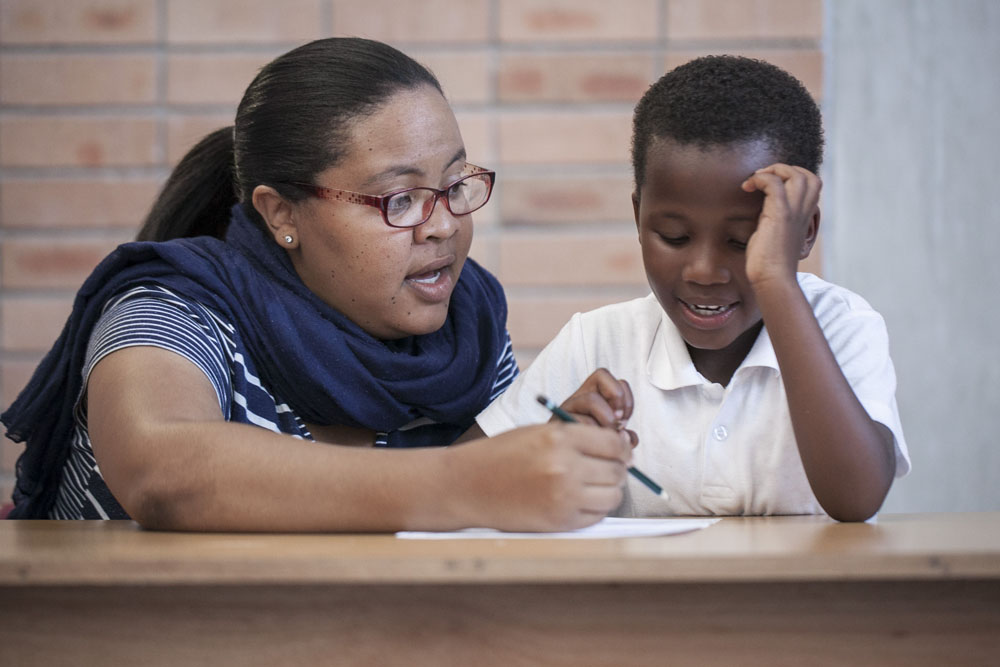
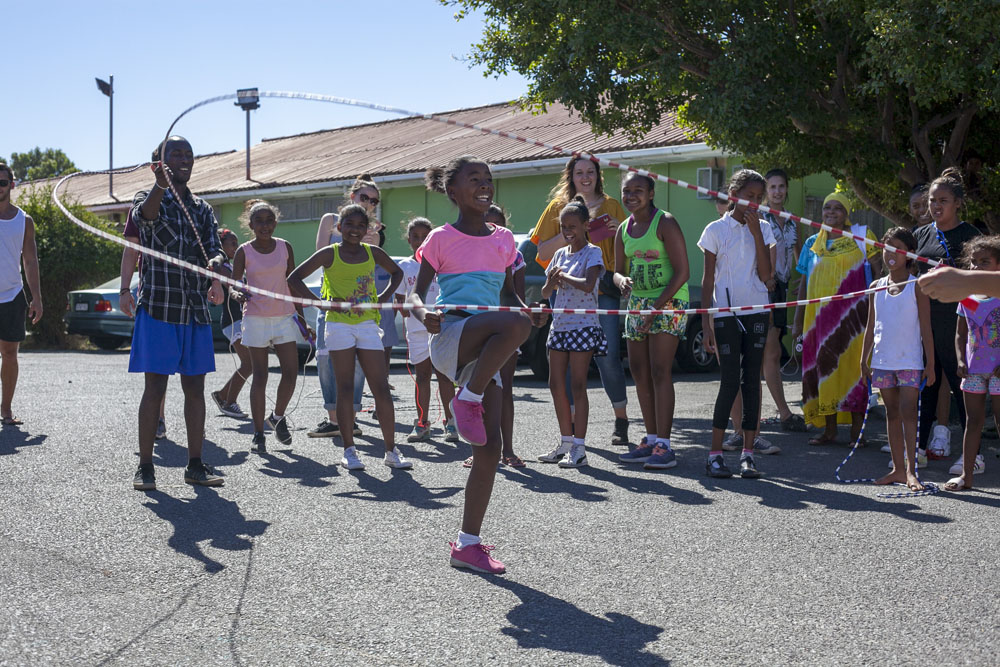
Mario van Niekerk
[email protected]
Adam Kane-Smith
[email protected]
Great Commission United
Standard Bank of South Africa
Vangate Mall (Code 025909)
Current Account #: 302674667
SWIFT CODE: SBZAZAJJ
REF: Soup [+your name]
© 2024 Woodstock Brewery. All rights reserved.